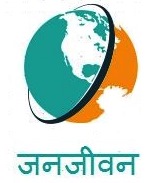Janjivan Bureau
Melbourne : Three Indian-origin men have been awarded Australia’s highest civilian honour this year for their contributions in the field of medicine and work towards the community.
Purushottam Sawrikar, a Sydney-based medical practitioner, received Order of Australia medal for the year 2017 announced on the Australia Day in General division category for his service to medicine and to the Indian community.
Sawrikar was a former president of Australian Indian Medical Graduates Association and also founded a community radio called Akashwani Sydney.
Makhan Singh Khangure from Perth was given the award for his significant service to medicine in the field of neuroradiology, to education, and to a range of professional medical associations.
Vijay Kumar, a nuclear medicine specialist and a researcher, was given the award for his significant service to medical research in the disciplines of nuclear medicine and biology, to professional organisations, and to the community.
Kumar, a founding Member of Sydney Tamil Sangam Association, was also awarded Australian Nuclear Science and Technology Organisation Award in 2007 and 2014.
A Darwain-based Tejinder Pal Singh was among the list of finalists in the Australian of the Year Local Hero catergory awards, for his efforts in improving the community.
Singh was nominated for his four-year-old initiative of providing a free-meal service called the ‘food van’ in Northern Territory.
Singh has been feeding the poor and needy locals of northern Darwin with dedication on the last Sunday of each month.
Over 950 Australians were named in the Australia Day Honours this year with former Prime Minister Julia Gillard and Victorians Governor Linda Dessau, organic scientist Andrew Holmes and former Liberal MP David Kemp receiving the nation’s top Australia Day medal, the Companion of the Order of Australia.
Others who received the top honours were a Queensland-based Biomedical scientist Alan Mackay-Sim who was named Australian of the Year this year.
Alan’s groundbreaking work on stem cells was crucial to the first-ever successful case of restoring a quadriplegic person’s ability to walk.

















